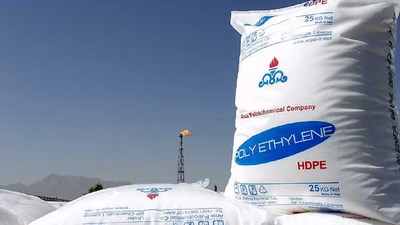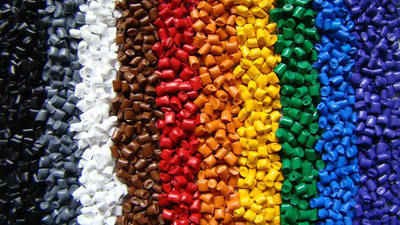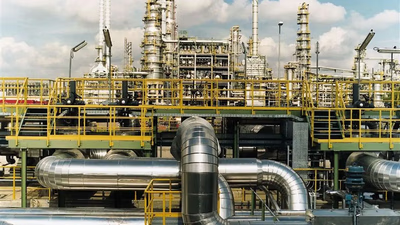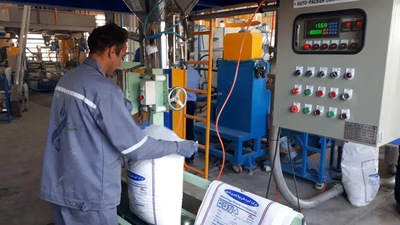
Petrochemical products like ethylene and polypropylene are crucial.
Petrochemical products serve as vital raw materials for numerous industries. They are used as building blocks in the production of plastics, fibers, rubbers, solvents, detergents, adhesives, coatings, and many other chemicals and materials. These products are essential for manufacturing processes across sectors such as automotive, construction, packaging, textiles, agriculture, pharmaceuticals, electronics, and more. Petrochemical products play a significant role in driving economic growth. They create job opportunities in various sectors, including production, research and development, logistics, and distribution. The petrochemical industry contributes to GDP (Gross Domestic Product) and generates revenue through exports, supporting national and regional economies.
Petrochemical products enhance safety and convenience in everyday life. Plastics are used in packaging, providing protection and preservation for food, medicines, and other perishable goods. Petrochemical-based materials offer insulation and electrical safety in wiring and electronic components. They also contribute to the development of medical devices, ensuring hygiene and sterility in healthcare settings. Petrochemical products are crucial in the construction sector. Plastics and polymers are used in pipes, wiring, insulation materials, roofing, flooring, and coatings. They offer durability, corrosion resistance, and thermal insulation properties, contributing to the longevity and performance of infrastructure.
Ethylene is one of the most essential petrochemicals worldwide. It is primarily used as a building block for a wide range of products, including polyethylene, ethylene glycol, vinyl acetate, and various other chemicals. Polyethylene, in particular, is the most produced plastic globally and finds extensive use in packaging, construction materials, automotive parts, and consumer goods. Propylene is another critical petrochemical that serves as a precursor to various products. It is used in the production of polypropylene, which is a versatile plastic widely used in packaging, textiles, automotive components, and appliances. Propylene is also utilized in the manufacturing of chemicals like propylene oxide, acrylonitrile, and isopropanol.
Petrochemical-based fertilizers, such as ammonium nitrate and urea, play a vital role in modern agriculture. They provide essential nutrients to crops, improving yields and food production. Petrochemicals also contribute to the production of crop protection chemicals that help control pests and diseases, ensuring higher agricultural productivity. In general, petrochemicals are those chemical products that are made from deformed petroleum or natural gas hydrocarbons with other materials through deformation or batch interactions. Petrochemical products with many general and industrial use issues such as fabrics (nylon; Dacron; wool and synthetic cotton); electrical appliances; chemical fertilizers; solvents; detergents and so on. Petrochemical products in the petrochemical industry can be divided into three categories:
- Basic products such as ethylene; propylene; Sulfur; Petrol; Ammonia and so on. These products form the basis of many other petrochemical products.
- Intermediate products that are produced from basic products and raw materials of factories that produce final products such as Polyvinyl Chlorides (PVC); melamine and so on.
- Final products that are used to make supplies and equipment used by industry and the public; Such as synthetic fibers; plastic objects; rubber; chemical fertilizers and so on.
Ammonia is a vital petrochemical product primarily utilized in the production of fertilizers, such as urea and ammonium nitrate. It is also used in the manufacturing of various chemicals, including cleaning agents, explosives, and refrigerants. Methane, the primary component of natural gas, is used as a fuel in power generation, heating, and transportation. It is also used as a feedstock for the production of hydrogen, methanol, and various other chemicals. Petrochemicals are chemical products from the processing of oil and gas. Petrochemical products are made from chemical compounds made from oil and other fossil fuels such as coal or natural gas, or renewable sources such as corn or sugarcane. Two of the most common petrochemical products are alkenes (including ethylene and propylene) and aromatics (including benzene, toluene, and xylene compounds).
Benzene is a fundamental petrochemical compound with numerous applications. It serves as a building block for the production of styrene, which is used in the creation of polystyrene, a commonly used plastic. Benzene is also utilized in the manufacture of various chemicals, including detergents, synthetic fibers, rubber, dyes, and pharmaceuticals. Toluene is primarily used as a solvent in a variety of industries, including paints, coatings, adhesives, and printing. It is also a key component in the production of benzene, styrene, and other chemicals. Toluene's versatility and ability to dissolve various substances make it a crucial petrochemical in many manufacturing processes.
Methanol is an essential petrochemical product known for its versatility. It is used as a solvent, fuel, and raw material for the production of formaldehyde, acetic acid, methyl tert-butyl ether (MTBE), and various other chemicals. Methanol is also increasingly being used as a feedstock for the production of renewable and sustainable fuels. Xylene is a widely used petrochemical solvent with applications in the production of coatings, paints, adhesives, and plastics. It is also used as a cleaning agent and in the manufacturing of polyester fibers, films, and resins. Xylene is available in various isomeric forms, including ortho-xylene, meta-xylene, and para-xylene, each with its specific applications.
Petrochemical products offer versatility and flexibility in terms of their properties and applications. They can be tailored to meet specific requirements, allowing for innovation and product development. Petrochemicals enable the creation of new materials, improved performance, and enhanced functionality in various products. This drives innovation and helps industries stay competitive in the global market. Petrochemical products contribute to energy efficiency in many applications. Lightweight plastics and composite materials derived from petrochemicals are used to manufacture lightweight vehicles, reducing fuel consumption and emissions. Petrochemical-based insulation materials improve energy efficiency in buildings by reducing heat transfer. These energy-saving benefits contribute to sustainability and environmental conservation.



